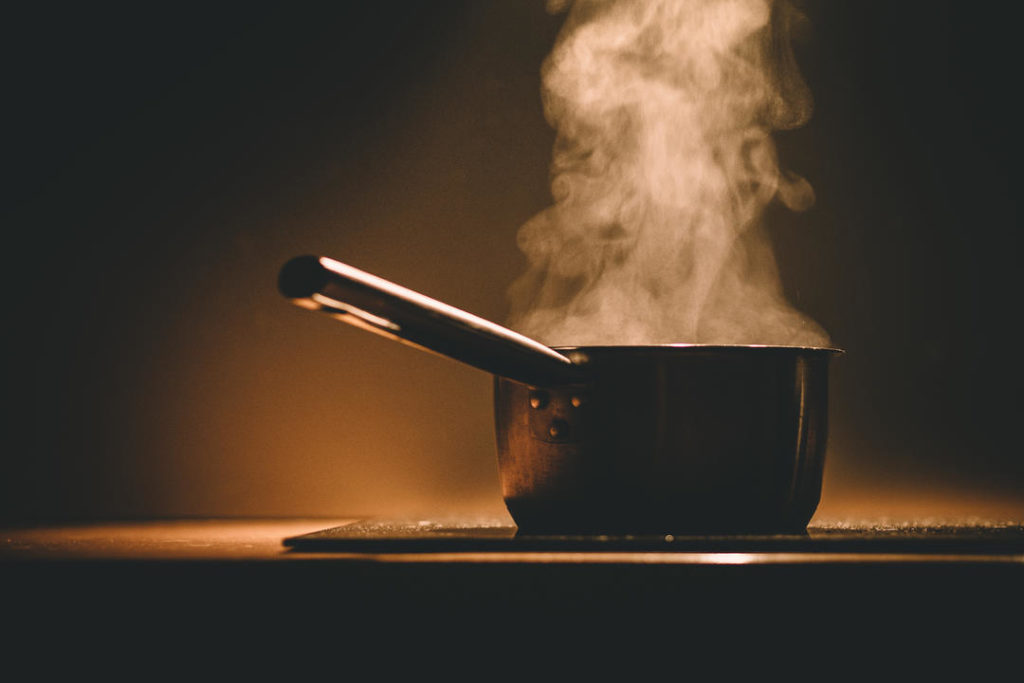
Contents
Smoke Point
Smoke point refers to the temperature at which oil starts to burn and smoke. Smoke point of oil can vary slightly due to impurities. When Oil is overheated it breaks down gradually, rather than at one specific temperature. Beneficial Nutrients and phytochemicals found in many unrefined oils are destroyed when the oil is overheated. Overheating also creates harmful free radicals. What happens if an oil is heated over its smoke point. When a smoke point is reached, you can see gaseous vapors which clearly indicates that oil has started to decompose. At the Smoke point, it generates fumes and free radicals which are extremely harmful to our body. Decomposition of oils not only affects the flavor and nutritional value but also creates cancer-causing compounds when inhaled or consumed.Oils and Their Use
Healthy fats are a part of balanced-diet. Here is a list of commonly used oils and the manner in which they are used. Some oils have a low smoke-point, which means they cannot be used for deep-frying. Almost all can be used for flavoring the salad-dressing.- Butter: It is used for sauteing and baking. Butter contains a lot of fat-soluble Vitamins and may even reduce heart attack risk due to the high Vitamin K2 content.
- Coconut oil: It is used for sauteing and baking. It’s high in saturated fat. The saturated fat in coconut oil raises LDL (bad) blood cholesterol, but not nearly to the same extent as butter. Coconut oil also seems to raise HDL (good) cholesterol. Coconut Oil is known to fight bacteria, build immunity and increase metabolism.
- Ground nut oil: It is used for searing, deep-frying, pan-frying, sauteing, roasting, grilling, baking and salad dressings. A good source of monounsaturated fat.
- Extra virgin olive oil: It is used for sauteing and frying over medium-high heat, and salad dressings. A good source of Vitamin E and antioxidants called polyphenols.
- Sunflower oil: It is used for deep-frying, pan-frying, sauteing, roasting, grilling, baking and salad dressings and is high in Vitamin E. Sunflower oil reduces cardiovascular diseases, fight free radicals especially good for cancer patients, a healthy option for arthritis patients, and it is an antioxidant as well. Sunflower oil prevents colon cancer, repairs the body, boosts the immune system, and promotes the proper functioning of nervous system.
- Almond oil: It is used for frying, grilling, roasting, baking and salad dressings. High in monounsaturated fat and an excellent source of Vitamin E. Almond oil improves cholesterol, ease the stomach from irritable bowel syndrome and protects against colon cancer.
- Flax seed oil: It is used for salad dressings, smoothies and drizzling over cooked foods. Excellent source of the omega-3 fatty acids. Flaxseed Oil is beneficial for Crohn’s disease and colitis.
- Grape seed oil: It is used for sauteing, frying, baking and salad dressings. A good source of Vitamin E .
- Mustard oil: It is used for cooking, frying, deep frying, salads, dressings. Mustard oil when consumed in moderation or sparingly improves digestion and builds a good appetite. Mustard oil also fights germs and virus, great to prevent cold, coughs and skin problems. It can ease inflammation.
- Rice bran oil: It is used for Cooking, frying, deep frying, salads, dressings. It is rich in monounsaturated fatty acids and has cholesterol-lowering properties due to the presence of a component called oryzanol. It Contains natural Vitamin E, (tocopherol and tocotrienol) which is an antioxidant. It also contains squalene, which is good for the skin.
Rancidity of Cooking Oils
Rancidity is a term generally used to denote unpleasant odor and flavor in foods resulting from deterioration in the fat or oil portion of a food. While rancid oil may taste bad, it doesn’t normally make you sick, at least not in the short term. Rancid oil contain harmful free radicals, which are known to cause cancer, heart disease or cellular damage and have been associated with diabetes, Alzheimer’s disease and other conditions. They can also cause digestive distress and deplete the body of Vitamins B and E.Preventing Rancidity of Oils
In Fresh Oil
- Store cooking oils out of direct light, especially direct sunlight. Light can break down the oil molecules, causing a deterioration in flavor and eventually distinctly rancid tones. This is why high grades of olive oil are commonly sold in cans or tinted bottles.
- Find a cool place to store your cooking oils. It may be convenient to have them directly on the stove, but the heat from cooking will shorten their shelf life. A low cupboard below the stove is a better choice because heat rises and a place below the floor is usually cooler.
- Replace the cap on your oil bottle after every use, as oxygen will also break down oils over time. Don’t shake or agitate the oil because this introduces extra oxygen into the oil. Narrow bottles are better for oil than wide bottles because they expose a smaller surface area to the air.
- Don’t stock up cooking oils bottles you won’t use within a year. Over time, heat and light can generate free radicals that can degrade the oil’s taste and quality.
In used oil
- It is not advisable to reuse oil beyond a second time. Preferably, use only once. Pour only enough quantity of oil so as to use it completely in one session.
- Reduce your use of salt in fried foods, if you wish to reuse the oil a second time. Salt breaks down the chemical bonds in the oil molecules and speeds deterioration.
Visitor Rating: 5 Stars
Visitor Rating: 5 Stars
Visitor Rating: 5 Stars